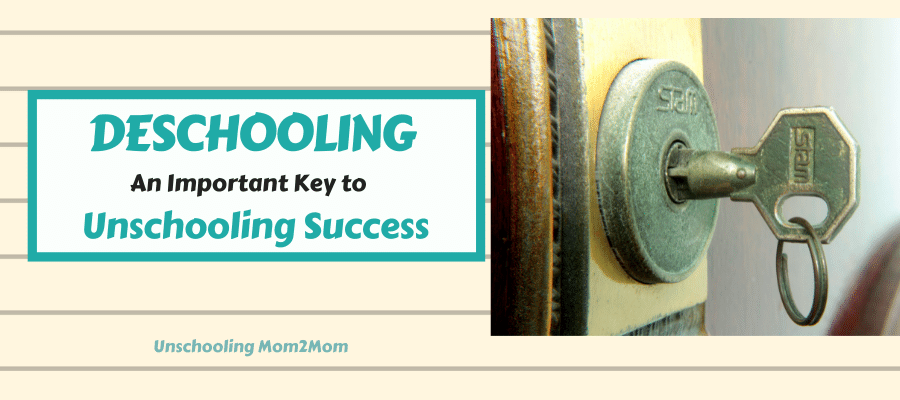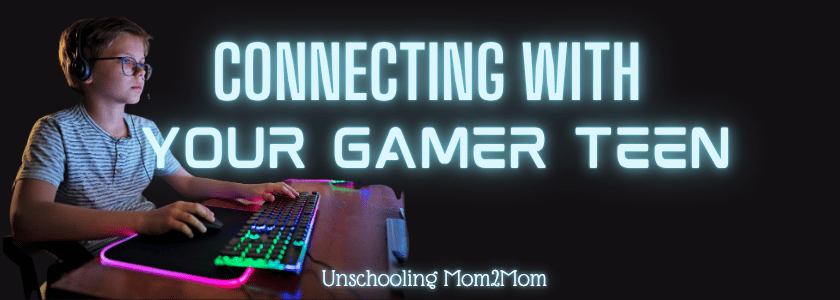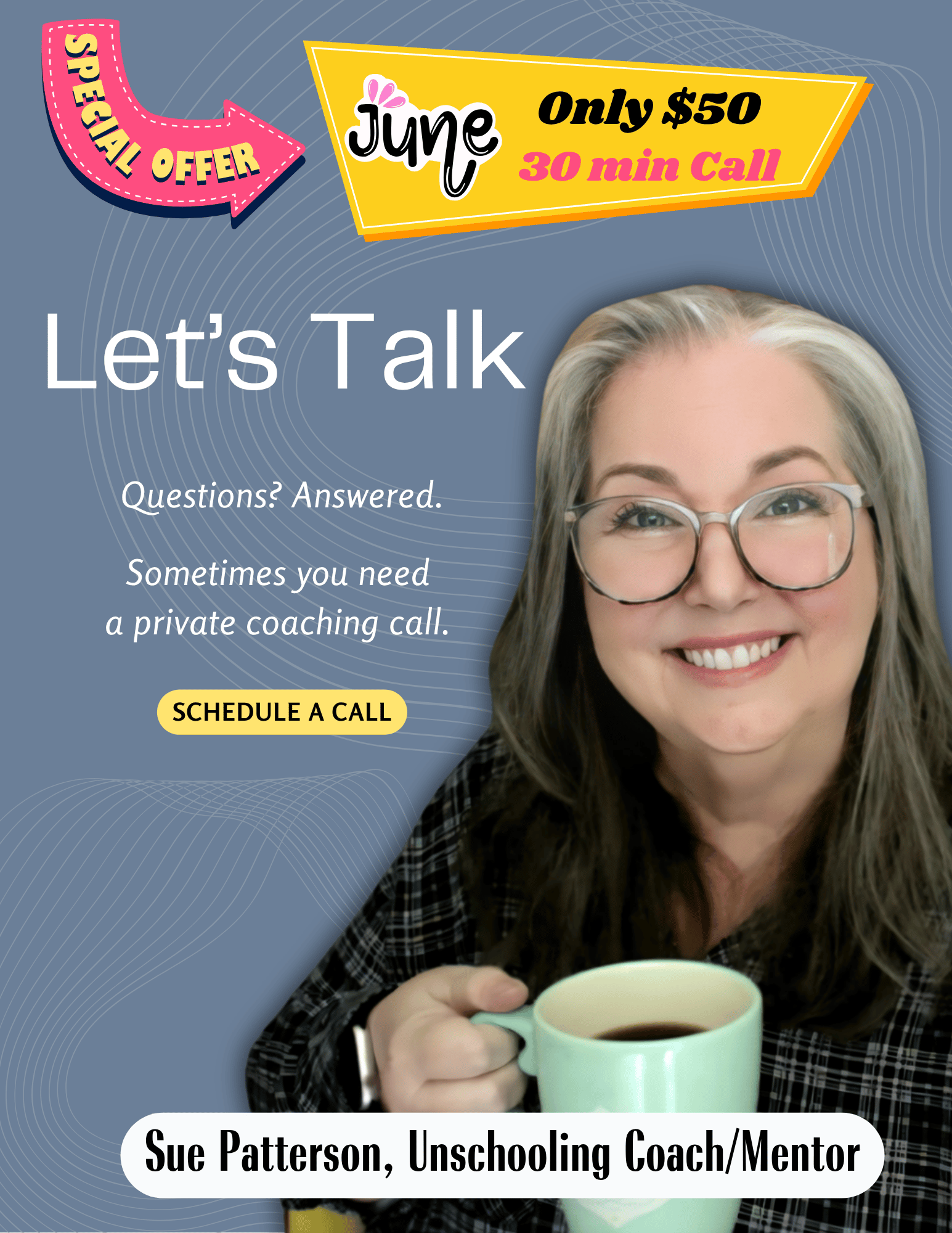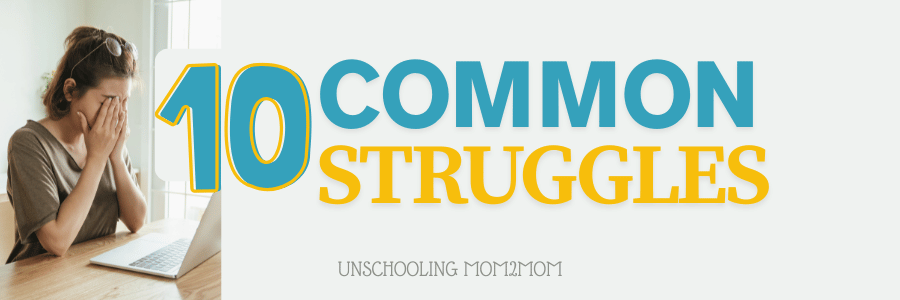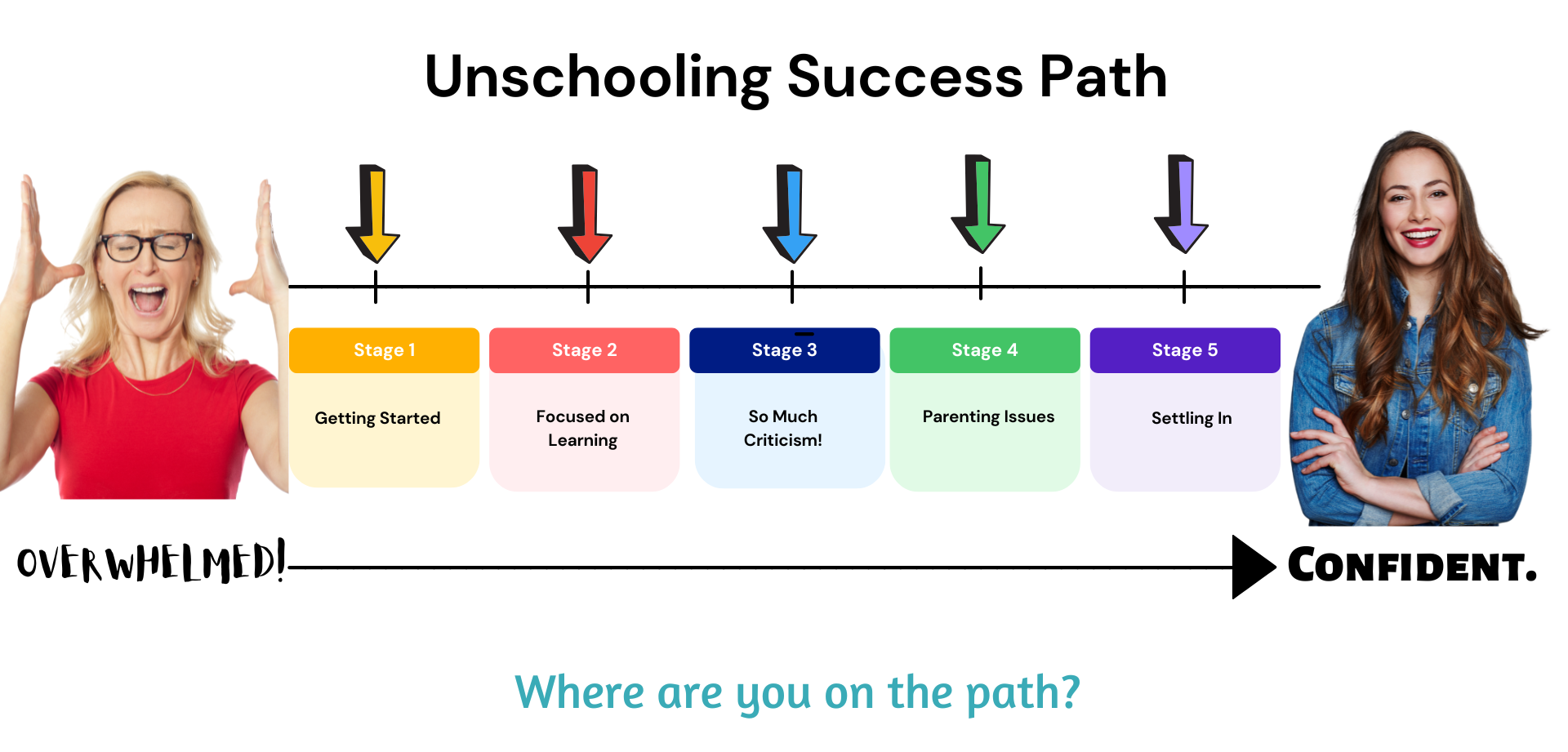Deschooling – The Key to Successful Unschooling
Let's talk about Deschooling and the specific steps to take during the deschooling process, like...
- Noticing the clues and rhythms of your own family.
- The importance of Play.
- The wasted time on pre-planning in homeschooling.
- How time tables for learning are artificial creations of schools.
- Using Real Life instead of subjects
- Stopping with comparisons.
Here's what I mean...
Deschooling is a word that’s often tossed about in homeschooling/unschooling circles. But before long, it’s relegated to the back burner when worries about curriculum choices, ACT/SAT tests, or “gaps” appear in the kids’ learning.
When people first leave the school system, one of the hardest things to do is relax into this new way of living. We’re so compelled to schedules and plans and “what’s next???” that we forget how that isn’t a natural way to approach life.
Some kids love the pace, others don’t.
So as unschooling parents, the key is to figure out all the little nuances of each of your children.
- What do they like to do?
- What makes their eyes light up or gets them really excited?
- How could you do more of THAT?
Next, dismantle the idea that some of the choices are valuable and others are less valuable. Because, when a brain is exploring & discovering – it’s all valuable! Minecraft, Animal Jam, YouTube – all of it!
It helps to think more about what Learning really is.
You’ve been conditioned to think that it’s only about academics, probably isn’t a lot of fun, and must be avoided! That’s not true though.
It’s true in school – but your kids aren’t in school anymore.
There’s no reason to embrace that smaller view of what learning is!
What do they enjoy?
Talk to them about the kinds of things they’d like to do – individually and together with the family. Empower them. Help them see that these are choices they get to make now – that you’re going to do all you can to support! You’re not going to try forcing them to learn anything.
This is another really difficult thing for everyone to wrap their brain around. I can hear your skepticism as you read about focusing on the curiosities and joy instead of the “rigors of academics.”
That’s because we’ve all been told that learning is not fun.
If it’s deemed “educational,” it must be dry, boring, tedious.
But that’s not true at all.
Human beings are naturally curious.
And when we’re allowed the time and resources to pursue our interests, we’re excited to do that!
Have you noticed how schools use
- Manipulation?
- External rewards and punishments?
- Competitions and coercion?
It's all because of the way they approach the learning process.
All their focus is on the teaching and the plan – with very little from the learner’s perspective.
And that’s the difference that deschooling will provide.
You’ll be able to get rid of that way of looking at learning, and see it for the awesome experience that it truly is.
Notice Clues, Rhythms, Preferences
Spend more time observing and watching for patterns - as opposed to asking your kids
"What do you want to learn today?"
They may not know - most likely they won't! And that's ok! As you try things out with them, they'll give you clues as to what they like, and what direction you might like to move with them.
So often, parents believe that this deschooling time is a limbo-like waiting period. But you have some things to do too. In addition to learning more yourself, you'll need to notice more about your child - still offering ideas to sparkle up their world and seeing how that lands.
Play with each kid every day.
The more you enter THEIR world, the more you'll learn about it. And you'll be gathering data for what to share/offer/help them find. Plus, you'll be connecting and valuing their choices in the world, instead of trying to find ways to talk them into doing things you want them to do.
Sometimes our resistance to play is because we've turned it into something bigger in our heads than it has to be. Sure, some kids want to play with us all the time - and that's good data to know! But often, they just want a few uninterrupted minutes to play something with us that they enjoy. Give them a little of your time in this way, and they'll feel how much you're prioritizing them.
More articles/podcasts about Play:
Pre-Planning can waste a lot of time.
And sometimes that might even be your hidden goal.
What?? Am I talking to you?
Do you prefer to read more, schedule more, investigate more – all as a procrastination to actually taking action? That’s not an unusual coping mechanism people use when they’re unsure of what the next step should be. But unschooling works best if you dive in. Anticipating what could happen next – good or bad – only works on the small scale.
What kinds of things does your kid enjoy now? Yes, anticipate that.
- Could they use a snack before you start out the door?
- Maybe everyone is in a bad mood and it might not be the best day to leave the house!
- Or maybe that’s EXACTLY what needs to happen!
Your family is unique.
What works for each of them may not be the same as someone else.
Get to know all these little quirks.
Help set them up for a successful experience.
But, know everything that could go right or wrong with any given scenario?
Impossible.
A time waster and sometimes an immobilizer.
Don’t bother with that! Stay flexible.
Time Tables for Learning
Get rid of the idea that children have to learn certain things at certain times or that they have to use any particular format. That kind of regimentation helps if you’re moving kids along the school conveyor belt. Or if you have to account for how you spend all those 12 years with a child. Or if you’re prepping them for this year’s standardized test.
But those are not worries that most of us have. All the world is available to them now!
If a museum exhibit is in town, go see it! You don’t have to wait until they’re considered sixth graders and that’s on the agenda for that year.
Or maybe they simply cannot get enough info about bugs – stay with it as long as they’re curious. Find resources that might interest them or help them discover more.
18 is not a magic number – they have a lifetime to learn everything that’s out there! Aren’t you googling and learning new things all the time?
Real life instead of Subjects.
Doesn’t it seem logical that subjects should come from real life anyway? So instead of starting with the subjects and applying them to the child, flip that around. What does real life require? Involve children in your daily life. They’ll be curious – once the schoolish ways have fallen away and they’re confident you’re not trying to sneak them back in somehow.
If you’re having a hard time letting go of “subjects” – or if you live somewhere that requires reporting – I’ve created a free PDF to help you:
This PDF may help you see how real life gives all sorts of opportunities to learn the subjects we’ve all been conditioned to believe are necessary. Glancing at the PDF may help you loosen your grip on the idea of
“How will they learn _____?”
Don’t compare.
Remember that they’re on their own TRULY individualized path for learning. Schools over-emphasize comparison and competition – and parents have been indoctrinated to this way of motivation and criticism. But it’s not the best way to encourage a child’s natural desire for exploration. AND it can really have a negative impact on you and your perception of what’s going on in your home. Get comfortable with your plan and your interactions with your child, then ignore the rest. You have no real way of knowing all the factors of what’s going on in other people’s homes anyway!
Read this: Resist the Urge to Compare
Deschooling the kids…
Notice if they’re making decisions because they don’t know about a lot of other options. Remember, they’ve had their whole lives planned out for them. It won’t be undone in one month. Lots of times people say,
“But my kid likes to do worksheets.”
Maybe. Some kids do like them for a variety of reasons. But do they think that’s the only legitimate way of learning?
Do they know there might be other ways to go about it?
Those are the kinds of questions to address over time.
They may just need more choices and more deschooling time themselves.
Deschooling Guide
Sometimes it's helpful to have it all the deschooling ideas and tools collected in one place. That's what this Unschooling Guide does!
Instead of searching around to find something here and there, it's all pulled together in a logical format to help you get the most out of this deschooling period.
This Unschooling Guide will show you how to break free from the ideas that are keeping you from embracing unschooling.


